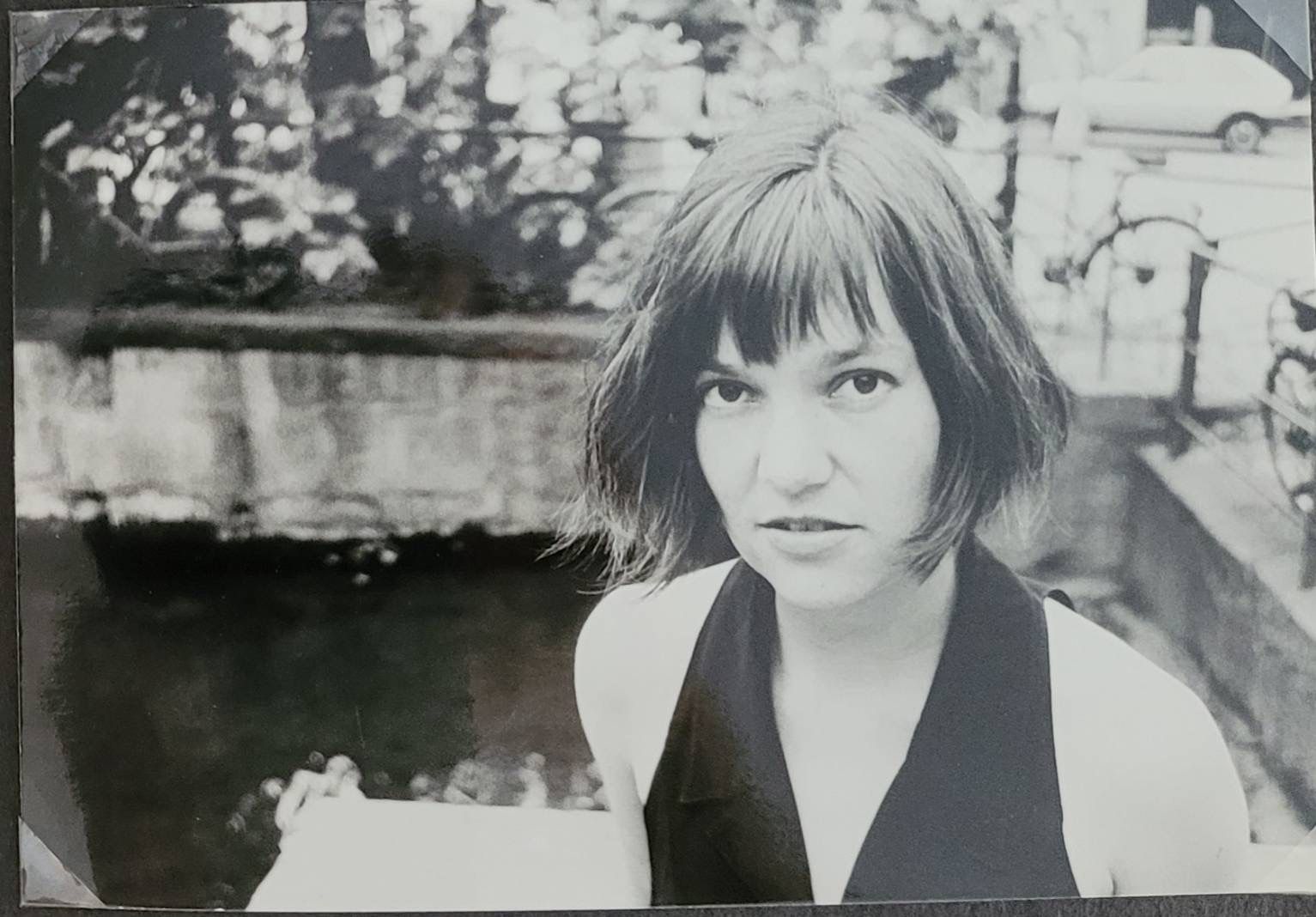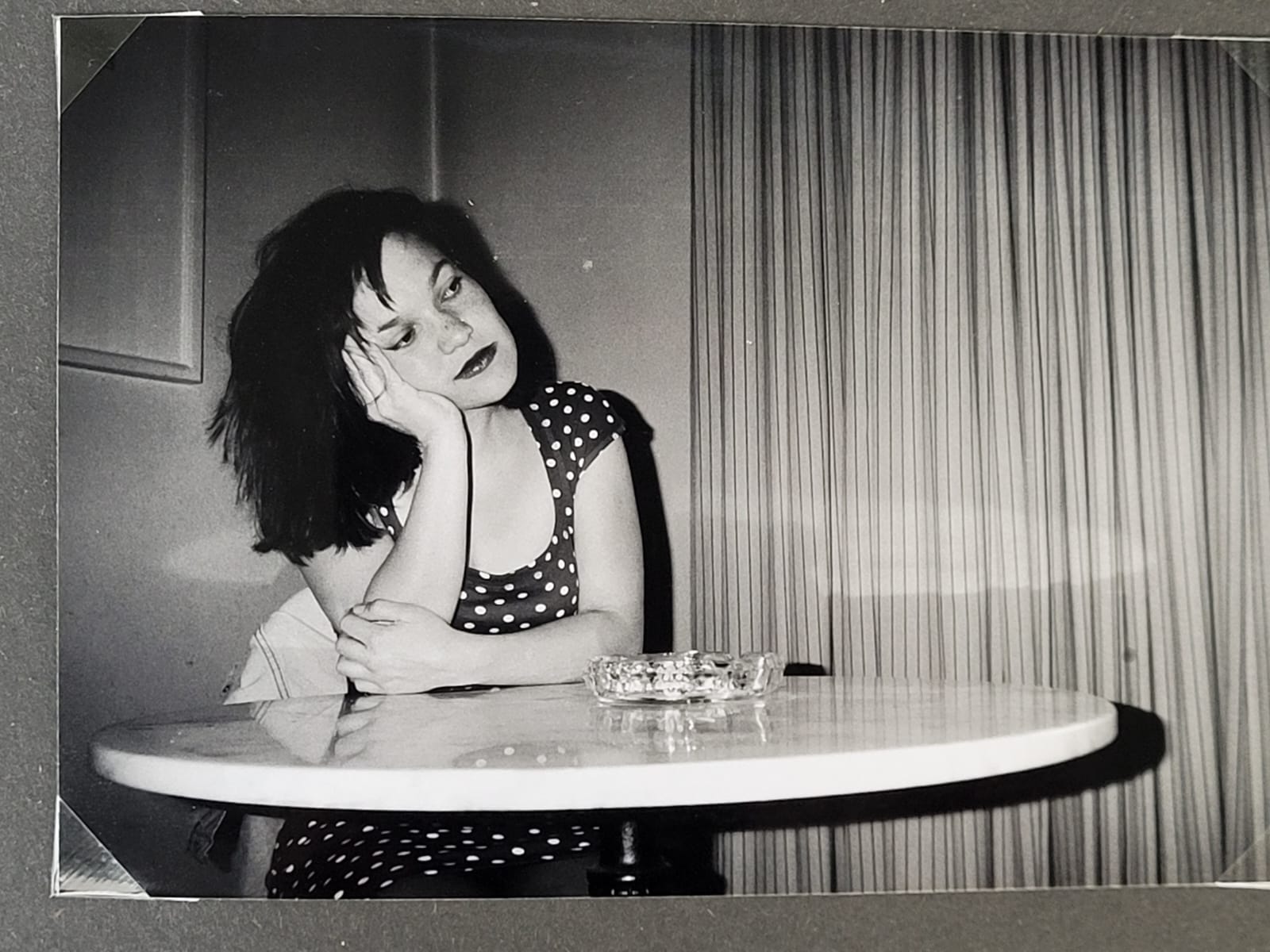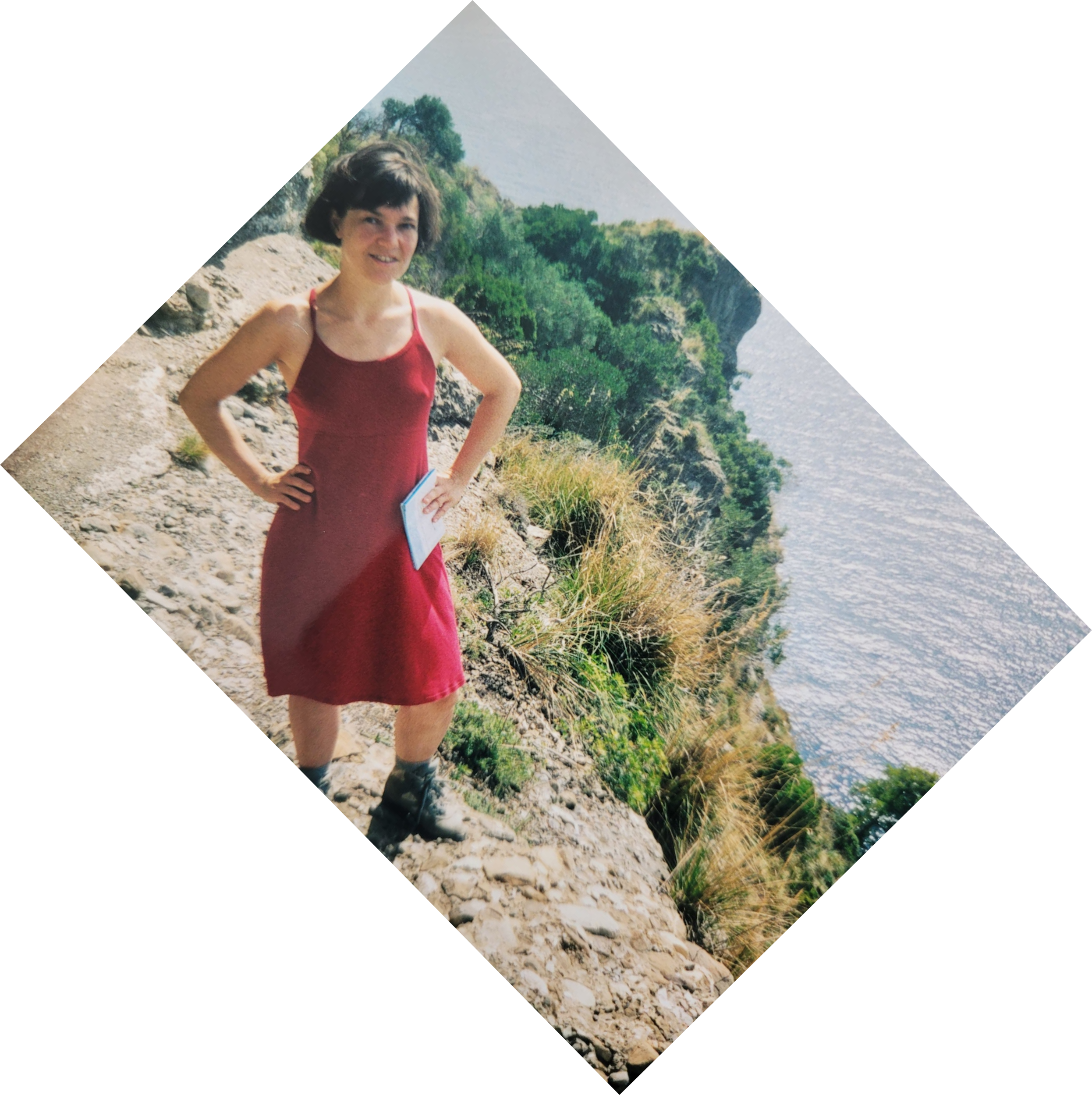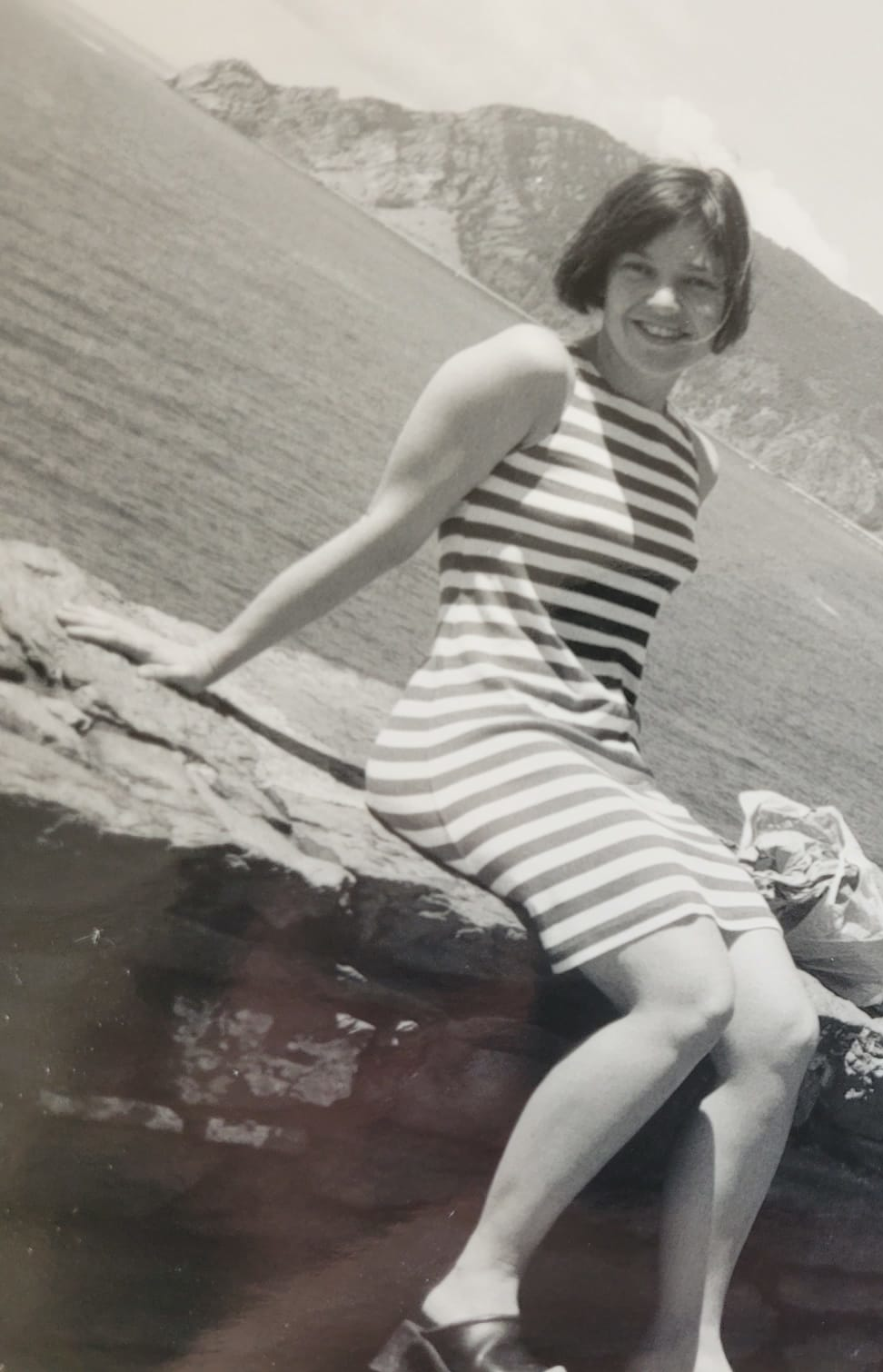Ulrike Ursula Wienrich was born in Stuttgart, Germany on February 7th, 1971 and grew up in Karlshrue a small German city near the French border. Her father worked for the EU Court of Auditors and her mother was a homemaker.
She read constantly, played games of Winnetou with neighboring children, and traveled with her family across Europe. Her parents adapted as best they could to the early arrival of a complicated palette and watched her eat only bread and butter during an entire week-long trip to the shellfish paradise of the Spanish coast.



Noticing her drive and precociousness, her parents switched from pubic school to European School Karlsruhe in fifth grade. A difficult French teacher and the immersive nature of language courses initially frustrated her, but she embraced French – and the deep rewards of foreign languages in general. She excelled in the multi-lingual, Euro-centric courses and sponged up anything related to languages, finally reaching the secondary-school pinnacle as a self-described “unbearable Latin nerd.”
Starting her studies at the nearby University of Tübingen in 1991, she originally attempted a major in German literature, but soon switched to Economics. Her friends remember her studying uncountable hours in the library preparing for exams, but also spending time just talking. She always found interesting things to do with friends who shared common interests in cultural activities and foreign languages.
Using the language coursework of German and French as a base, she rapidly expanded into Italian, Greek, and Spanish. The buoyant friendliness of Italian captured her heart most intensely and she chose Rome for her Erasmus year in 1993/1994. She steeped herself in the inescapable art and history, the movies of Nanni Moretti and 90s Italian pop.


Typical of the youth of the early 90s, a unified and easily-accessible Europe expanded her identity. She felt just as much at home in the major cities across the continent as she did in Germany. When she graduated from Tübingen in 1997, she looked for a way to weave this appreciation into her studies and future career: she enrolled in the College of Europe in Bruges, Belgium for a year-long pursuit of a masters in Economics.
The course work-load was much heavier than in Tübingen and the famously medieval town of Brugge was charming, but could feel cramped. The small student body was immersive and career-focused in a way that she initially found alienating. Gradually, she was swept up in the diverse backgrounds of her classmates – fed from the ever-expanding footprint of the EU. She made life-long friends from all across the continent, each exposing her to different languages, perspectives, and cuisines.
By now, the picky eating habits of her youth had solidified into a strict vegetarianism. While this can result in a homogenous, predictable diet for some, for Uli it became an opportunity to comb through the cuisine of every new culture she encountered, searching for new flavors. If a culture’s offerings were especially limiting to her (Portugal), she would happily subsist on a diet of sweets and cakes.
With a hard-earned masters degree from Brugge in-hand, she joined a friend on a 7-week language-study course in Greece. They explored Crete and the Greek mainland largely by foot. Her companion was so impressed by Uli’s love of hiking, it provided her with a life-long hiking passion of her own.


Uli was selected for a 4 year economics PhD program in 1999 at the European University Institute in Florence, Italy. Here, an appreciation and enjoyment of art became a consuming passion. Once the intense first year of studies were behind her, she procrastinated endlessly. The towns, churches, and artwork of Tuscany became her informal course work. If she wasn’t out exploring, then she was reading fiction all day in bed, the books on economic theory stacked nearby. As always, Uli rallied by the end: she earned her PhD in Economics in 2003.